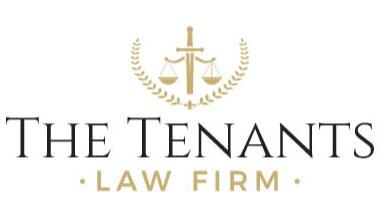How Would Your Renter Rights Be Changed by Senate Bill 329?
In February 2019, California Senate Bill 329 was brought before the California State Legislature by Senator Holly Mitchell, D-Lose Angeles. So far, SB 329 is successfully working its way through the Assembly, and on June 26, 2019, it passed out of the Judiciary Committee. The bill next heads to the Assembly Appropriations Committee before potentially going to the floor for a full vote.
SB 329 seeks to amend several sections of the Government Code that are related to the topic of housing discrimination. Under the California Fair Employment and Housing Act (FEHA), an existing law that safeguards against discrimination based on multiple categories, including source-of-income discrimination. Under the current law, landlords cannot discriminate against renters because of their source of income. However, the law only protects renters who earn their income from specific sources, and unfortunately, housing vouchers and other government subsidies are not classified as a protected source of income under the current law.
How Does Senate Bill 329 Change the Law?
SB 329 will result in some alterations to California Government Code Section 12927, which is one of several California laws protecting people from housing discrimination. The bill would amend how "source of income" is defined in the language of the section such that it would be specified explicitly for these sections of the law. The amended code would define one's income source as verifiable income that is paid directly to either the individual tenant or to the landlord or another housing owner on the tenant's behalf. According to the amended text of SB 329, Included amongst the possible verifiable sources of income are housing subsidies and other public assistance programs or vouchers, whether originating from local, state, or federal sources.
Rising Housing Costs in California
California is notorious for having high rental costs associated with living in the state. According to Federal Census data, in 2013, about 16% of Californians qualified as poverty-stricken. More than 300,000 California residents receive vouchers for housing, also referred to as "Section 8 vouchers," to combat the homelessness problem in the state. These vouchers provide low-income individuals with the opportunity to supplement their earned income with vouchers that make up the difference in rent which they might otherwise be unable to afford. There are several different sources for these housing vouchers, including the REAP vouchers that are administered by the City of Los Angeles.
Why Is Senate Bill 329 Necessary?
While housing vouchers provide Californians with lower incomes the chance to take advantage of safe and clean available housing, implementation of the voucher program has not been without challenges. While existing law does prevent a landlord from discriminating based on one's source of income, it specifically states that a landlord does not qualify as a representative of the tenant, which opens a loophole for property owners of dubious morality.
This means that it is legal for a landlord to reject an individual who attempts to rent a property using a Section 8 voucher since that voucher stipulates that the government will pay the landlord. However, the law specifically states that a landlord is not a representative of the tenant, so the "verifiable income source" which a landlord cannot discriminate against does not apply because the money is flowing directly to the landlord. This creates a loophole that allows landlords to reject applicants who want to take advantage of housing vouchers.
